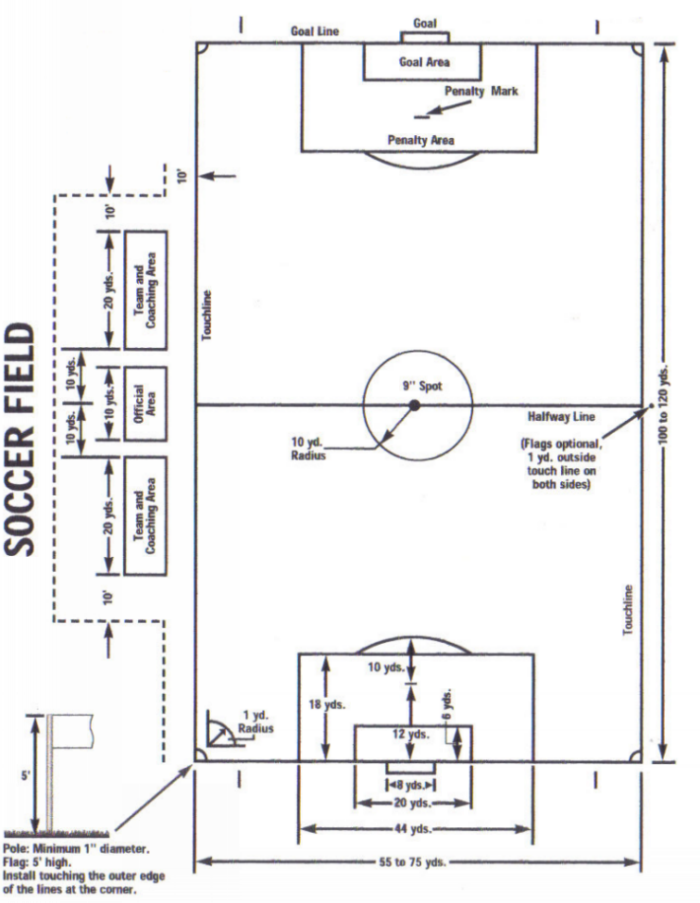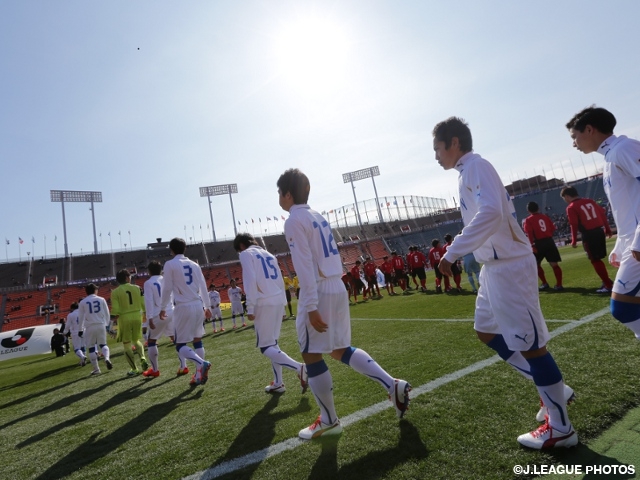
You have probably wondered about the different roles played by officials if you've ever viewed a football game. In this article, you'll learn about Head linesman, Line judge, Center judge, and Assistant referee. These roles are crucial to the success and safety of players and fans. Continue reading if this is something you are considering.
Head linesman
The head linesman supervises football games. The head linesman is responsible for marking out-of bounds situations, counting offensive player, and determining whether a forward pass or sideline pass is legal. There are several other officials who make up the football officials' staff. Other than the chief linesman, important roles are played by other football officials. Here are a few.

Line judge
In addition to a whistle, a football line judge plays an important role in the game. In addition to ensuring that the ball is properly placed on the field, he is also responsible for the play's completion and return. He should be well versed in the rules and position of each player on the football field. He should also know the lines of sight to his side. The following are some basic rules of the line judge's role in football games:
Judge at the center
One of the challenges of football officials is the increasing number of games being played. Officials have difficulty keeping up with the game's increasing popularity. The NFL is considering a new position for football officials to remedy the situation. This new position would be found in the offensive backfield to the side the quarterback throws the ball. The NFL is likely giving the new position another name. But what is the role of the Center Judge?
Assistant referee
An assistant referee helps the main ref by signalling violations like corner kicks and throw ins. While they can point out offside violations, the head referee is the ultimate judge. Soccer matches last 90 mins and are split into 45-minute halves. Occasionally, extra minutes are played to compensate for time lost in the first half.
Referee
There are many responsibilities for football referees. They are responsible for interpreting the Laws of the Game throughout a game. If a team doesn't follow the Laws, it will forfeit the match. Referees are able to help the team win by following the rules throughout the game. Here are the roles of a soccer referee. Let's take closer at each.

Hall of Fame inductees
The Hall of Fame honors football officials who have made a significant contribution to the game. Other than the NFL, Hall of Fame inductees are available for many other sports. Bill McNally is one example of an inductee from an alternative league. Bill McNally, the former Eagles head coach, was one of six coaches who led his team twice to the Super Bowl. In 1981, his team lost to Oakland Raiders at the Super Bowl. However, he led St. Louis Rams towards a championship in 1999.
FAQ
What happens when a goal in soccer is scored?
Once a goal is scored the opposing player gets a chance for a free kick. Free kicks are used when the defending team commits fouls during play. A free kick can be taken after the goal is scored.
Can I play football without any special equipment
You can play soccer with no special equipment. All you need to play soccer is a ball and a field. If you have a group of friends who want to join you, then you can form a team.
What is a soccer field?
A soccer pitch is a rectangular grassy surface divided into two halves by a crossbar. The offensive zone is the area where the offense tries to score goals. The offensive team tries to score goals in the attacking zone. The defense team defends the offensive from attacks.
What are the various types of soccer uniforms available?
There are many styles of soccer uniforms. The uniform also includes soccer shoes and boots. When playing soccer, wearing the correct uniform helps protect players from injury.
Statistics
- the estimated cumulative television audience for the 2006 World Cup in Germany was 26.2 billion, an average of 409 million viewers per match. (en.wikipedia.org)
- The word "soccer" is a British invention that British people stopped using only about 30 years ago, according to a new paper by University of Michigan professor Stefan Szymanski. (businessinsider.com)
- Even with the new issuance, control of the club will be retained by the Glazer family as they will retain 67% of B shares which have voting power, so little will likely change in the general approach taken to the finances of the club. (sites.duke.edu)
- the estimated cumulative television audience for the 2006 World Cup in Germany was 26.2 billion, an average of 409 million viewers per match." (en.wikipedia.org)
- From the 1850s onward, industrial workers were increasingly likely to have Saturday afternoons off work, and so many turned to the new game of football to watch or to play. (britannica.com)
External Links
How To
How to play Soccer
Soccer requires that you have excellent skills like dribbling and passing, shooting, heading, tackling and so on. You should always try to improve these skills. The most important thing is to practice your skills daily. Follow these steps to learn how you can play soccer well.
-
Practice dribbling. You can practice dribbling on the field until it becomes natural. When you start practicing dribbling make sure that you do it in short bursts of 5 minutes at a time. When you feel confident with dribbling the length of your practice should be increased to 10 minutes. You can continue practicing this technique each day.
-
Practice passing. Practice passing the ball to both sides. You must pass the ball correctly to the person with the space. Try to avoid throwing long passes. It's better if you throw the ball directly to the player who needs it. This will save you time and keep your body warm.
-
Practice heading. Heading requires you to place the ball perfectly into the net. You must practice positioning yourself to achieve this goal. Face the target and stand next to the goal line. Next, bend forward slightly to place the ball under your nose. Next, raise your head towards the top-left corner of the net. Your eyes should be straight ahead. Then, get up and release the ball.
-
Practice handling. Tackling is one the most difficult techniques to master. But once you master it, football is much more enjoyable. To begin, you should tackle with your chest and shoulders. Do not go too low. Also, remember to keep your arms close to your body. It is better to tackle in smaller groups of two people. One player serves as the defender, while the other acts as an attacker. As soon as the attacker gets past the defender, they must immediately tackle him.
-
Practice shooting. You need to practice shooting. Find a place where you can shoot comfortably (e.g. You should be near the goal. Then, focus on your form. The ball should be held between your hands. Your knees should be bent and your feet should point upwards. With your wrist, make a circular motion to aim for the ball. Make sure to aim for the corner in the bottom left of the goal.
-
Practice running. Running is another skill that takes some time to perfect. Start off slowly and gradually build up speed. You should not use running as a way to attack because it can tire your muscles. Instead, run towards the goal to assist your teammates.
-
Practice kicking. Kicking is one of the easiest skills to learn but also one of the toughest. In order to kick accurately, you need to develop strength in your legs and core. Now, put your feet together. Lift one leg at the time. Slowly kick your ball towards the net by using only your heels
-
Keep practicing dribbling. This skill is essential to becoming a great player. Dribbling lets you control the pace of play. Dribbling is crucial to controlling the pace and preventing your opponents from catching up or overtaking you. Consistency is the key to mastering dribbling. It is important to not change the way you dribble each day. Stay true to your strengths.
-
Free kicks are available for practice. Free kicks are often given after a foul is committed or when the goalkeeper makes mistakes. The free kick allows you to score goals without playing the whole match. Try aiming at the corners of the goal. Remember to use the instep and not the heel when aiming for the corners of the goal.
-
Practice defending. Defending is all about positioning. Playing defense means staying close to your opponent. If the ball is handed to you, stop him from scoring. Always ensure the safety of your teammate.